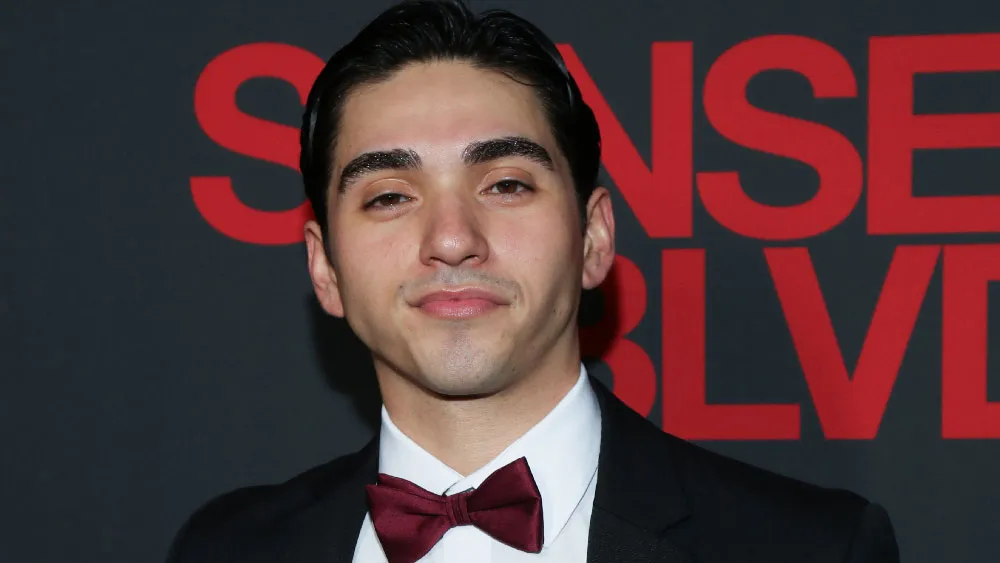September 1, 2017
Our Future: America's Gay Youth are the Future of Hip-Hop
Kyle Mangione-Smith READ TIME: 5 MIN.
To say that hip-hop hasn't always been accepting of the LGBT community would be an understatement. It was a fact that made it difficult for me to appreciate the genre for years, and now makes it difficult to reconcile my love of it with my own identity. Back in the 90s and early 2000s, the homophobia and misogyny that underlies a lot of hip-hop was the only way most outsiders to the genre knew it. It was a dynamic that was essential to Eminem, along with countless others, launching his career, with the media controversy over his lyrics creating the type of subversive edge necessary to draw an entire generation in.
But in 2017, the idea that hip-hop is in any way still outside the mainstream is laughable. For the better half of the last decade, hip-hop has replaced pop music. It's the genre that nearly every mainstream artist that's come to define the 2010s has occupied -- Kendrick Lamar, Drake, Kanye West. That's not to say that with hip-hop's proliferation it has entirely shed its problems with the LGBT community, but it has opened up the doors to a variety of different takes on the genre, and with it different types of artists who could have never been viable ten years ago.
Brockhampton, the hip-hop collective out of LA, just released their sophomore album "Saturation II" last week, their second album in the summer of 2017 alone. With it, they've likely placed themselves as one of the most promising and prominent artists currently coming out of the genre, and for good reason. Many people won't see what the group is doing as particularly radical, as their beats and flows fit well within the realm of the brand of pop rap that has dominated our culture for years now, but that's hardly why their music is as vital and exciting as it is right now.
"Why you always rap about bein' gay?
'Cause not enough niggas rap and be gay
Where I come from niggas get called 'faggot' and killed
So I'ma get head from a nigga right here
And they can come and cut my hand off and
And my legs off and
And I'ma still be a boss 'til my head go, yeah"
Those lyrics are from Kevin Abstract's verse off the song "Junky" on "Saturation II," and they're deservedly getting praised as some of the most daring lines any artist has dropped in recent memory. Kevin is openly gay and has confronted his sexuality directly through his lyricism throughout the last year, but his perspective just serves as the tip of the iceberg for the group. As Kevin puts it in his interview with The Guardian from April, "We are what America actually is. We speak for people of color who have a hard time expressing themselves publicly." Among the nine members of the group, there are those who are gay, straight, black, white, immigrant, and many of whom come from entirely different corners of the country.
At the same time, Tyler, the Creator, one of the defining figures in shaping the course of the genre in recent years came out of the closet on his release "Flower Boy" in July. It was a moment that confused and surprised plenty, and of course stirred up its own fair share of controversy, given Tyler's bountiful and unapologetic use of the word faggot early on in his career. But in a lot of ways, it recontextualized the art and persona he's been building for himself since he burst onto the scene. The dark, surreal overtones clashed with his cartoonish color palette, his refusal to conform to any of the expectations of hip-hop artists, and of course, his excessive use of gay slurs.
Gayness is finally getting its moment within the world of hip hop, and not because homophobia no longer exists in the genre, but because recently gay people have been proving that there's a space for them within this realm of music whether people want to accept it or not. The swagger and braggadocio that draws so many to hip-hop isn't mutually exclusive with heterosexuality in 2017.
The subversive nature of hip-hop to white America back in the early 2000s is undeniably a major factor in why the genre has been able to grow to the heights it has, but in the era of Trump it's laughable to think that being openly homophobic and misogynistic is radical. So where does hip-hop go if it's to move forward? How does it stay fresh, how does it continue to surprise? I think it's clear gay artists are offering us an answer; how accepting people will be of the image they're presenting remains to be answered.
Kyle Mangione-Smith is a filmmaker and student living in Boston.
Watch Kevin Abstract's video for "Miserable America":
Watch Tyler, The Creator's video for "Who Dat Boy":


